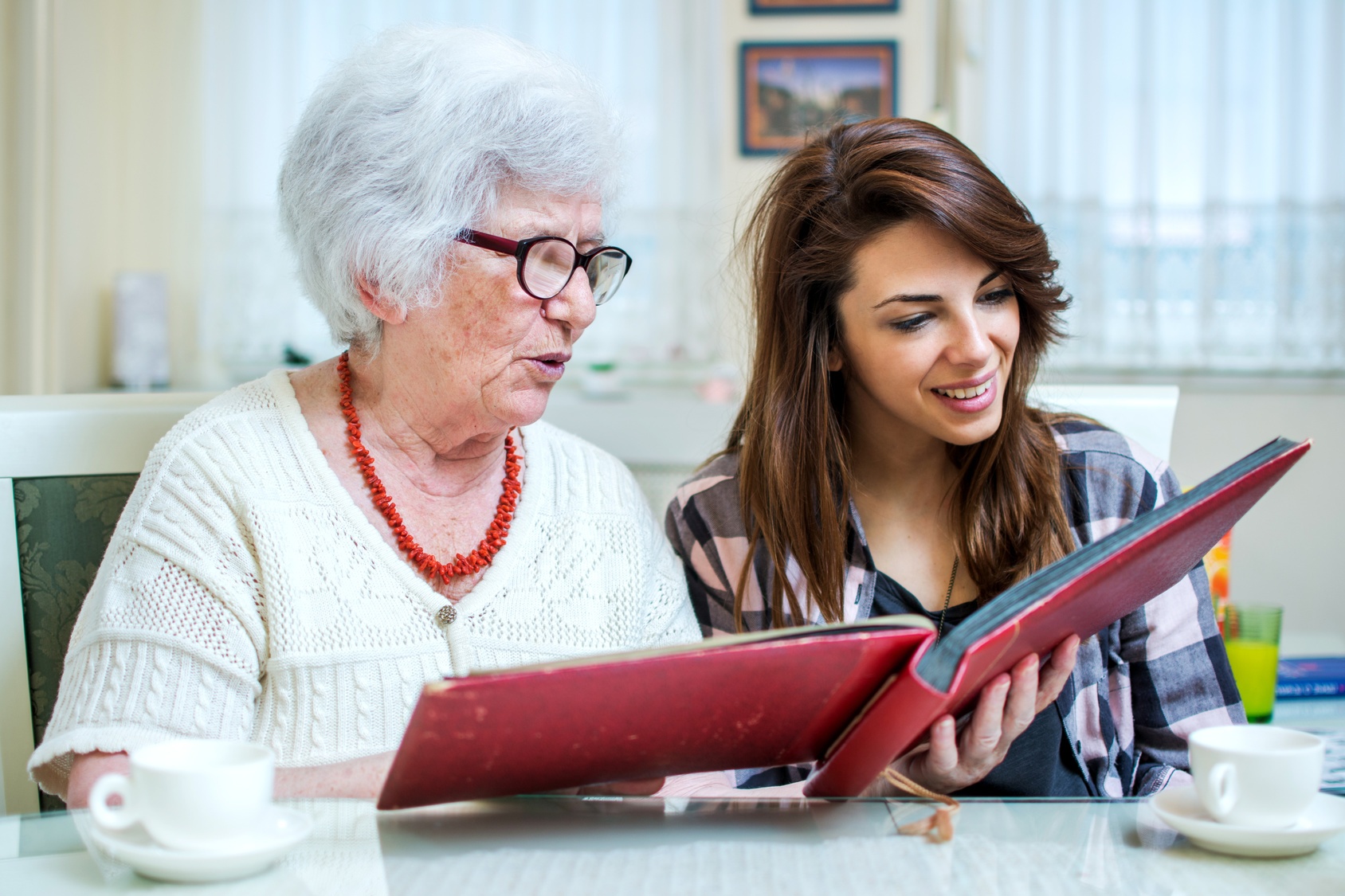
As Grandparents Day approaches on Sept. 9, you and your children may be interested in celebrating your parents and their grandparents. But that’s likely easier said than done if one of your parents has Alzheimer’s or some other form of dementia.
On Grandparents’ Day or any other special day, here’s how you can plan an enjoyable experience for everyone involved:
Go Through Old Photos
People who have dementia often have an easier time remembering past experiences when they see visual aids from earlier in their lives. Family photos are some of the best such visual aids. Not only do they show people and events that your grandparent will recognize, but they’re also likely to bring up fond memories, helping your loved one feel happier, safer and more comfortable.
Go through one of their own photo albums if you can — since they put it together, don’t be shocked if they can’t recognize the order of the photos and the occasion for which they were taken. Let your grandparent know it is a cherished memory for you and stay in the moment of sharing photos together now. For some, the more elements that are likely to be remembered, the more enjoyable the experience and the more likely they will benefit from it.
Listen to Music

Music has been shown to help people with dementia feel more connected and engaged. So if you have a grandparent who has dementia, spend some time listening to some of their favorite songs with them. If it sparks their interest, be ready to sing along or dance with them.
Alternatively, if you sing or know how to play an instrument yourself, why not perform something for them? Not only is the act of listening to music itself beneficial, but your grandparent will likely enjoy watching you perform.
Try to find songs that your grandparent will recognize, as this can help motivate memory and give them as enjoyable an experience as possible. If you can find a suitable player, use records, cassette tapes or CDs that they listened to earlier in life. If not, there’s nothing wrong with listening to streaming services, but try to avoid the kind that include advertising, as ads can disrupt the listening experience and confuse your loved one.
Play Dementia-Friendly Games
Certain board games are designed specifically for people who have dementia. These activities help jog your loved one’s memory, so they'll have an easier time keeping track of what’s going on and playing effectively. Some of these games also create cards and other keepsakes that your grandparent can hold on to afterward, which will help them remember the experience. As a result, it should improve their mood and their memory both in the present and over the long haul.
In any competitive activity, it’s important not to put too much pressure on your grandparent. Don’t make it seem like it’s a big deal if they fall behind or have trouble understanding the rules. If it ever seems like your grandparent doesn’t enjoy the game, don’t hesitate to suggest some other activity. The goal should be to have fun, not to win or show who’s “better” at any particular game.
Spending holidays or any day with loved ones with Alzheimer’s or dementia can be challenging. Download our complimentary Dementia Guide or reach out to us anytime for more information — we’re here to help.












